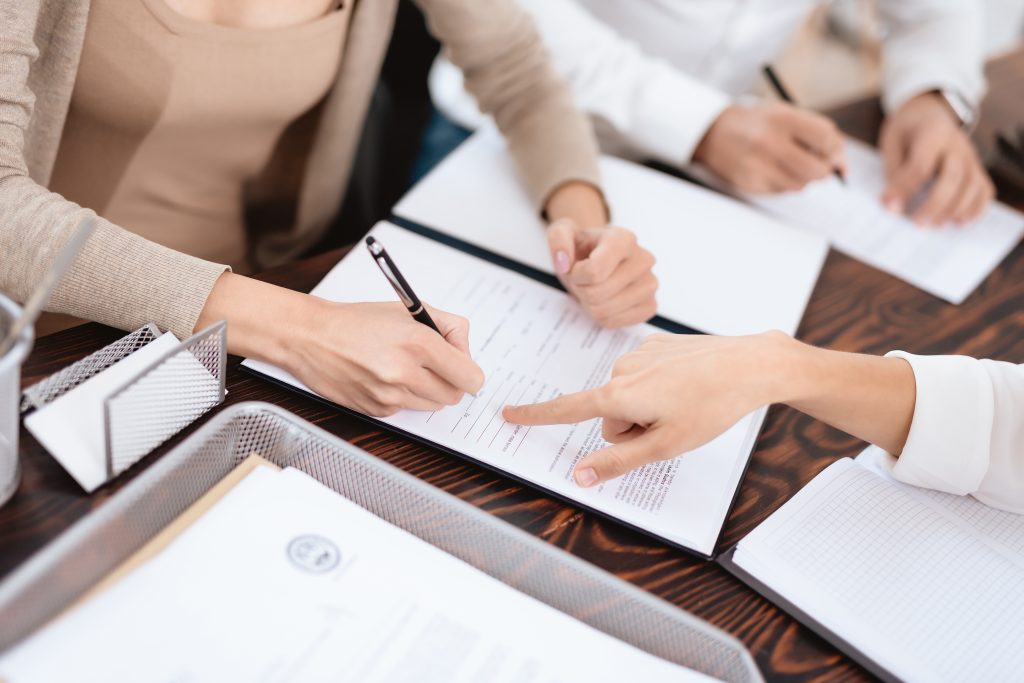Do you often find yourself asking, “What documents can a notary public sign?” We bet you have. Most notaries are asked time and time again how they can help their fellow community members. So, you’re not alone. Notaries are impartial witnesses to the signing of important legal documents. Their job is to verify a signee’s identity and ensure that there is no fraudulent activity happening in the processing of the papers.
Using sound judgment, a notary can decline to provide their notarization. It’s best to keep in mind that not all essential or legal documents require notarization or commission. So, before you go hunting one of these specialists down, make sure you understand what you require from the notary public, and most importantly, if their service is needed.
What documents can a notary public sign? Here’s a quick list of some documents and services that a licensed notary can assist with.
Documents a notary can sign – Quick List
- Oaths
- Affidavits
- Statutory declarations
- Wills
- Trusts
- Advanced directives
- Executorships
- Custody and guardianship agreements
- Power of Attorney
- Court documents
- Articles of incorporation
- Memorandum of understanding documents
- Vendor contracts
- Commercial leases
- Employment contracts
- Construction and loan agreements
- Mortgage closing documents
- Property deeds
- Loan documents
- Some types of credit or loan documents

Remember that each state has different laws, so check your state laws to determine what documents a local notary can help you with. If you’re unsure, do a quick search for your state and reach out to local notaries in your area for assistance. If you’re looking for a notary in your area, you can use this search engine at notaryjane.com for quick results. Keep in mind that some notaries serve on a small scale, and others can handle high-volume document notarizing. The person you reach out to will need to know what service you request to help you better.
Depending upon the service needed, notaries may need to provide additional information such as signing locations, availability and rates. When selecting a notary, it’s important to check their credentials and ensure that they are licensed with the appropriate government authorities. Additionally, always ask for references or feedback from past customers before hiring any notary.
Once you have identified a reliable notary, it’s important to make sure they are insured and bonded so that any error or omission on their part is fully covered. It’s also important to inquire about the turnaround time for document completion; if needed quickly, ensure the notary can meet your timeline in order to avoid any delays.
When meeting to sign papers, make sure that you bring the proper form of identification with you. It is vital for protecting yourself and ensuring your rights are honored according to the law.
Knowing what documents can a notary public sign and what type of identification to bring can be tricky. Some documents, such as those involving real estate transactions, require two forms of government-issued identification. Other papers may only require one form of ID. The ID must also be up to date and not expired in any way.
Accepted Forms of Identification
“Accepted forms of identification for having notarial services performed include the following:
- State-issued driver’s license
- State-issued identification card
- U.S. military identification card
- Resident alien identification card (green card)
- U.S. passport

Unaccepted Forms of Identification
Unaccepted forms of identification may include the following:
- Birth certificates
- Social security cards
- School identification cards
- Credit cards
- Debit cards
If you are unable to obtain an acceptable form of identification, you may be able to verify your identity to the notary public through a credible witness. A credible witness is a person who knows the signer of the document and can vouch for his or her identity. In addition, some states also require witnesses to provide additional proof such as a driver’s license or other government-issued form of identification. It’s important to note that not all states allow the use of credible witnesses to verify a signer’s identity.
Before proceeding with this option, you should contact a local notary to determine if it is an accepted practice in your state. It is also important to be aware of the responsibilities of a credible witness. Witnesses must have a good understanding of the signer’s identity, and they are responsible for verifying information such as their full name, address and date of birth. Furthermore, witnesses should not be related to or have any interest in the document that is being signed.
Want more information about ID? See our article Forms of ID for Notary which will help understand the “What documents can a notary public sign?” further.
But a signer can’t use a credible witness for the sake of convenience. If a signer accidentally left their driver’s license at home, for instance, they can’t let a friend or family member vouch for their identity. The only time when a credible witness is allowed is when the signer has no form of acceptable identification, and the signer can not reasonably obtain an acceptable form of identification.”
So there you have it, a great cheat sheet to keep handy or share with anyone you know who is asking the question, “What documents can a notary public sign?” When in doubt, the best approach is to contact a local notary in your area and ask them how they can best assist you. When you do find a notary and you meet up to get your documents signed, make sure you validate their stamp by asking to see the imprint and validity year. It’s rare that you’ll have to worry about that but a good tip to keep in your back pocket.
Following a notary’s guidelines for document verification is key, as this ensures the accuracy and proper handling of legally binding documents. Notaries can also provide guidance on how to properly execute paperwork so that it complies with their respective state’s regulations. At the end of the day, notaries and legalized documents can give you peace of mind.
By understanding what paperwork is needed, who is required to sign them, and how a notary public can help; you are doing the most you can do so your legal matters are taken care of and properly documented.

